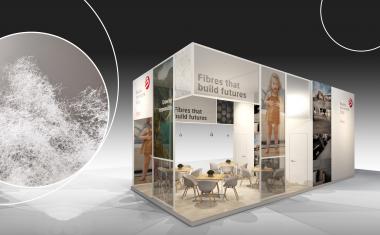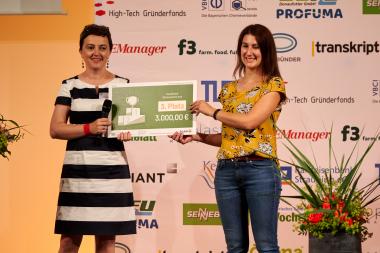Beaulieu Fibres International at IDEA®22
- Complete fibre portfolio for geotextiles, hygiene & wipes, floor coverings, automotive, upholstery, filtration, RTM and construction
- Increasing nonwoven & engineered fabric performance with new fibres that reduce carbon footprint & support design for recycling
- Exploring new possibilities for collaboration using BFI’s expertise, pilot line and equipment
Beaulieu Fibres International, the largest and most differentiated European staple fibre producer, turns the spotlight on future-focused solutions for nonwovens & engineered fabrics at IDEA®22, 28-31 March. A key priority is innovation in polyolefin and BICO fibres to advance sustainable design, end-of-life recyclability, and resource and carbon footprint reduction for industrial and hygiene applications.
Sustainability is key to Beaulieu Fibre International’s long-term strategy, and the company is heavily focused on defining its green portfolio to support evolution in diverse market applications.
Bio-based fibres
From June 2022, Beaulieu Fibres International will offer ISCC+ certification on mono-PP and BICO PP/PE fibres. The fibres will be offered in 1,3-8,9 dtex and will be available with all the main available finish classes (ie. hydrophilic, hydrophobic, etc.) suitable for the main carding and consolidation technologies. These drop-in solutions with no loss in quality will support customers looking to reduce reliance on virgin fossil carbon in their nonwoven and engineered fibre applications. The bio-based fibres enable customers to contribute to the transition towards a circular economy.
Achieving material savings
For customers in industrial segments like geotextiles, high-tenacity HT8 staple fibres enable customers to achieve nonwovens for construction projects with high mechanical performance but with 15% less weight. The durability of the fibres means that customers can use less raw material for a longer service lifetime, supporting more sustainable design in addition to resource reduction.
For hygiene nonwovens, the Meralux fibres provide significant sustainable design advantages. Meralux fibres deliver substantial sustainability benefits including around 55% savings in raw materials, with equivalent carbon emission savings. These emission savings are thanks to weight reduction in nonwovens with the same coverage level and also the higher recyclability of PP/PE compared to BICO materials.
Beaulieu International Group





















